Ultrasonic Sensor Integration for Pelton Turbine Deflector Positioning
August 2021
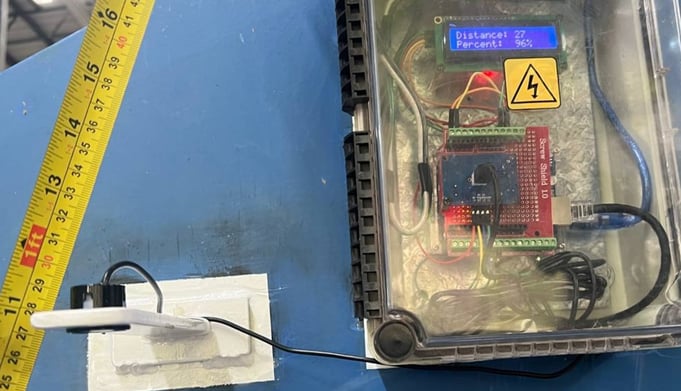

Ultrasonic Sensor Integration for Pelton Turbine Deflector Monitoring
Difficulty Level (Based on Experience): Basic
Time to Completion: 1 week
Date: August 2021
Company: Consorcio de Inversiones CISA
Devices Programmed: Ultrasonic sensors installed above the deflectors of two Pelton turbines to measure deflector movement within a 0-100% range.
Technologies Used
Microcontroller Libraries: ModbusIP, MedianFilter, NewPing
SCADA Software: GP-PRO EX
Project Description
To monitor the position of the deflectors, two JSN-SRT04 ultrasonic sensors were installed 40 cm above the deflectors, placed diagonally to ensure the ultrasound wave bounces off the metal surface of the deflector. This setup allowed for accurate measurement of the deflector's movement in centimeters, which needed to be displayed on the SCADA system controlling each turbine.
Each ultrasonic sensor was connected to an Arduino, which was programmed to act as a Modbus TCP/IP device with Holding Registers. This enabled the SCADA system to read the deflector position in real time, aiding operators at the control center in optimizing turbine performance.
The ultrasonic sensor, connected to an Arduino programmed as a Modbus TCP/IP device, accurately detects and transmits the deflector’s position percentage to SCADA. This real-time data was crucial for operations, as once the turbine is online, the deflector should remain steady—any unintended movement indicates a loss of hydraulic pressure, often caused by an oil leak.
This system proved invaluable in late 2023 when a sudden deflector drop in one of the turbines helped diagnose a hydraulic system failure, leading to targeted maintenance and preventing further issues.
Real-Time Monitoring of Pelton Turbine Deflector Position
In this video, you can see the system working in real-time. On the left, the Pelton turbine raises its deflector, while on the right, the SCADA system sends a command to the PLC to increase power generation, which in turn lifts the deflector.
Project Development
The construction of this project required a deep understanding of Modbus communication, extensive testing of Arduino libraries for Modbus protocol, and fine-tuning the integration of an ultrasonic sensor for precise deflector positioning.
Key aspects of the development included:
Modbus Communication: Implementing and testing different Modbus TCP/IP libraries to ensure reliable data exchange between the Arduino (acting as a PLC) and the SCADA system.
Ultrasonic Sensor Calibration: Configuring the JSN-SRT04 sensor to accurately measure the deflector’s position while ensuring stable readings.
Signal Processing Optimization: Instead of using a simple average, a median filter was implemented to reduce noise and outliers, improving data accuracy in fluctuating conditions.
Laboratory Testing: Conducting isolated trials in the company’s lab, simulating real-world conditions before deployment in the power plant.
This structured approach ensured a highly reliable monitoring system, providing accurate real-time data essential for turbine operation and predictive maintenance.
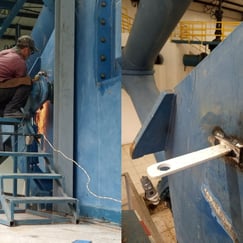
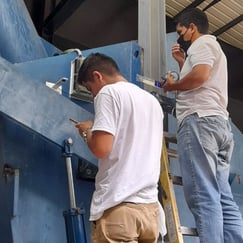
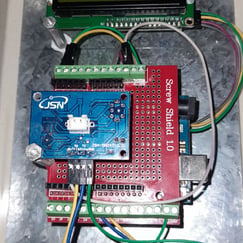
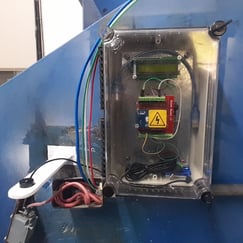
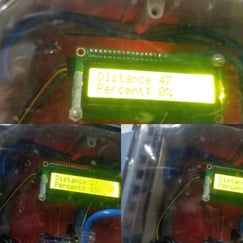
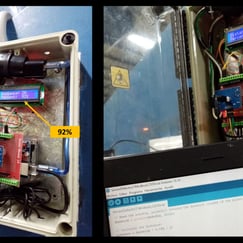
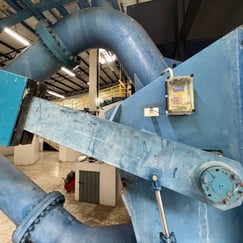
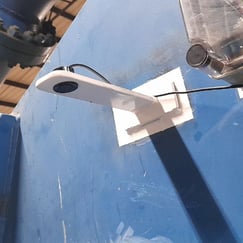
Real-Time Monitoring of Pelton Turbine Deflector Position
To monitor the position of the deflectors, two JSN-SRT04 ultrasonic sensors were installed 40 cm above the deflectors, placed diagonally to ensure the ultrasound wave bounces off the metal surface of the deflector,
8/5/20212 min read
